With so much diet advice pushed upon us daily, it’s hard to know anymore what’s right and what’s just absolutely wrong. At SkinnyBitch, we’re not fans of fads. Sure, a 3 or 7-day diet will jump-start your weight loss, but in the end, you need sound advice that will work for you long term. That’s what we are always aiming to provide you. And that’s why we wrote this guide.
Our research has shown overwhelmingly that people make the same diet mistakes repeatedly—often because they’ve been told the choices are healthy. Here, we’ll dispel some of those myths so that you can smarten up about your approach to diet and finally lose some real weight.
Mistake #1: Not Getting Full Enough
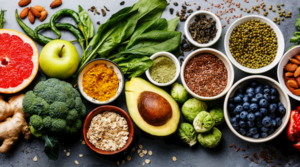
On the right foods, that is. You will never get full enough on simple/refined carbohydrates like sugar and flour. You know this. You know they make you fat for that very reason. Stop eating them. They will never make you full enough to reduce your caloric intake. To eat less, you need to feel full. Here’s how.
Switch to protein and fat. Eat enough fat and protein to feel truly full. These foods tend to be high in other nutrients, making them extra good for you. And because they are high in satiety, you won’t feel hungry again for hours. This is especially true with protein.
The American Journal of Clinical Nutrition found that people who doubled their protein intake ate 440 fewer calories a day, without even realizing it. Here’s an outtake of their conclusion:
An increase in dietary protein from 15% to 30% at a constant carbohydrate intake produces a sustained decrease in caloric intake….and results in significant weight loss.
On top of that, protein boosts your metabolic rate because it is more difficult to metabolize, helping you burn more calories (up to 100 extra calories a day) through the digestion process alone.
Boosting the amount of fat and protein to your diet, while cutting out refined carbs is the simplest, fastest most pain-free way to lose weight without even trying.
Takeaway message: Increase Protein ASAP
Mistake #2: Eating Foods Made with Flour
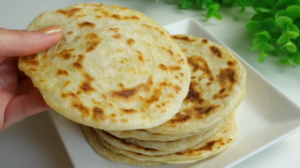
This one is related to #1, but more difficult than simply upping your protein. However, it’s well worth it because it will dramatically change your belly bloat in a short amount of time. I’m not talking about gluten intolerance here. Most people reading are not gluten intolerant. I’m talking about flour equating to junk food. At SkinnyBitch, that’s what we think of flour: upscale junk food.
Gluten sensitivity aside, we know that foods made with flour contribute to the development of fat cells, quickly. Push yourself to take just 10 days off the flour and you’ll be shocked at two things: first, how hard it is (because you’re unknowingly addicted), and second, how much flatter your stomach gets in just 10 days. I go back and forth in my ability to stay off flour, but when I need emergency weight loss for an upcoming event, the first thing I do is cut out all flour-based foods. It works every time.
The problem with flour-based foods is expansive enough to fill several books, so I’ll be brief. Flour-based foods are high in calories but low in nutrients, so they do not fill you up. You can eat lots of them and still feel hungry for more—increasing your total calorie intake each day. Empty calories and minimal nutrients are what flour-based foods deliver. Like I said, upscale junk food.
Flour is barely food at all, it’s so highly processed.
What about spaghetti and delicious veggie red sauce? Skip the noodles, and just eat the delicious sauce. Pour it over something else. Something like more vegetables or lean meat. You will get much fuller and actually consume fewer calories.
Flour also spikes your blood sugar in the same way sugar does. It damages your body and increases your risk of diabetes. And don’t think you can cheat by using some kind of “gluten-free” alternative. It’s ALL junk food.
For some reason (there are many theories) flour flour-based foods bloat your stomach. Some say it’s the inflammation. Others blame an allergic reaction. Scientists don’t actually know, but after you try a diet without any flour-based foods, you’ll see for yourself on your own flatter stomach.
Takeaway message: No more bread, buns, pasta, cakes, cookies, bagels….you get the idea.
Mistake #3: Eating Non-Fat
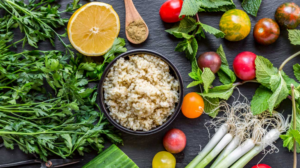
This one is harder to change than you might think because it feels wrong at first.
We’ve been brainwashed to believe that fat makes you fat and diseased, even though the evidence supports the opposite.
Decades ago, scientists were convinced eating fat was harmful and that a low-fat diet was much healthier. The whole world adopted this belief. Non-fat everything hit the shelves and we changed our habits to be as healthy as we could. Unfortunately, the science was wrong. We kept getting fatter and sicker. And fatter and sicker. We’re still getting fat and still reaching for the non-fat. It doesn’t work the way we thought it did.
Over the last 30 years, Americans have reduced fat intake by 25%, yet obesity has doubled and heart disease remains the number one killer.
Saturated fat (yes, saturated) encourages liver cells to dump their fat cells. It also helps white blood cells in your immune system to fight viral and bacterial infections. Not only that, saturated fat helps your body repair tissue, preserve muscle, and improve your sexual function. And that’s just the saturated fat.
Other types of fat are essential for brain function and cell building. Did you know your brain is half fat? Our cells need fat to operate well and our stomachs need fat to feel full. Without a nice belly of full-fat yogurt, instead of non-fat, we’re far more likely to pig out on flour-based foods—the ones full of calories and short on nutrients. Bloated belly spiral, here we come.
Even though we know what we’re doing isn’t working, it’s been a very tough habit to break. I find myself at times, reflexively reaching for the product labeled “nonfat”. And I know better.
So far the biggest beneficiaries of the non-fat movement have been pharmaceutical companies because diabetes has skyrocketed.
This is a change you can make. It’s easier to make when you’re armed with information, so if you didn’t get enough here, start Googling why fat is good for you.
Takeaway message: No more non-fat. Fat is good.
Mistake #4: Juicing
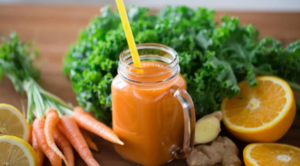
I said it. Juicing is not a weight loss strategy. Nor is it a health strategy.
Juicing is a cumbersome, expensive process that takes nutritious fruits and vegetables and removes all the most valuable components, leaving you with high-end fructose water. At best it is wasteful. At worst, juicing is compromising your health.
Because the natural sugars in your fresh juice are no longer attached to the fibrous cell wall of the vegetable, the juice spikes your blood sugar like soda. Don’t believe it, check out this article in a medical journal on diabetes.
For those of you freaking out and wanting to throw darts at the page, give me a chance to explain. I’ll do it with data.
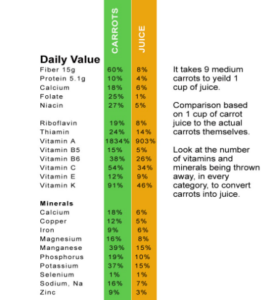
If the numbers on the chart don’t speak for themselves, you need to read it again.
It’s also worth mentioning that juicing fasts causes constipation because fiber is required for the digestive process. As you can see, very little fiber remains after juicing. In fact, juicing fasts often require a laxative. You heard it right. A laxative is necessary to create bowel movements because the juice cleanses is so very unnatural for the body.
I’m sorry if you just spent $300 on a juicer and feel badass about your new juicing lifestyle, but just the amount of food waste you have left over from making a single glass of juice should tell you something is wrong. You’ve taken the food out of your food.
If you need to drink your vegetables, sell the thing on eBay and invest in a blender. That way you can make smoothies that retain all the nutrients in the fruit or vegetables you’re using. Plus, no waste.
Takeaway message: Juicing is bad for you. No more juicing.
Mistake #5: Eating Fake Food

I was in the grocery store the other day shopping for hummus. I picked up two different containers and couldn’t believe the difference in ingredients. It’s hummus! It’s super simple food made of chickpeas and olive oil. I was just too lazy to make my own. The first one I picked up was full of things that sounded like chemicals rather than food. The other, refreshingly, contained chickpeas, olive oil, lemon juice, salt and pepper.
If you’re not reading labels or you’re knowingly eating manufactured food, you have no one to blame but yourself for your weight problem. There’s just no excuse anymore for eating chemicals in place of actual food.
If you can’t find what you need and don’t have time to make it, buy something else. You’re never going to be healthy eating toxins and there’s no way I would have bought hummus that day if I couldn’t find one with real ingredients.
One thing you consistently find in common with countries or regions that have amazing health and longevity (think Japan or the Mediterranean), they eat real, whole food. Not processed, packaged goods full of chemicals.
The healthiest foods in the world (fish, vegetables, fruit) don’t have an ingredient list. They’re already perfect, all on their own.
Mistake #6: Avoiding Eggs
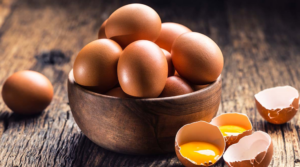
This in another one that was thought to be dangerous in the 70’s and 80’s. Turns out, the science was once again wrong. I’m not against science. I’m very much for it, but the public and media seem to handle it poorly. When news breaks, they run wild. When scientific corrections are made or errors are found, the media fails to mention them. I guess it’s not exactly headline-grabbing. Eggs will kill you! vs Eggs are good for you!
We know, without doubt, that eggs are not just nutritious; they have proven weight loss benefits.
First the nutrients. Eggs are the start of life. Eggs contain all the building blocks necessary to form and sustain life. With the exception of vitamin C, one egg contains every one of the essential vitamins plus many minerals, including choline and lutein. An egg yolk is one of the few foods that naturally contain vitamin D.
Eggs also contain all the essential amino acids (the building blocks of protein that the body needs but cannot make) and loads of antioxidants.
More, eggs help you lose weight because they make you feel fuller longer. In a study of 30 overweight women who ate either a bagel or eggs for breakfast, the egg group ate less for the next 36 hours.
Go ahead and have eggs for breakfast. They’re fantastic.
Takeaway message: Eggs are your new multi-vitamin.
Mistake #7: Counting Calories
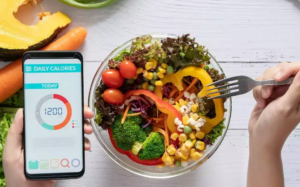
Forget calories. If you’ve made it this far in the guide, you know that different foods behave differently in our bodies. Flour-based foods leave us hungry and nutrient-deprived. Protein leaves us full and highly nourished. Fat leaves us satiated for hours and loaded with brain nutrients. Juice spikes our blood sugar and provides little in the way of nutritional value.
All of the above could potentially contain the same number of calories in the serving. The difference is how we react to them.
You don’t have to stop counting calories, especially if it’s effective for you. For most people, however, counting calories just makes dieting miserable rather than fulfilling.
Calories don’t matter nearly as much as the type of food you eat.
Eating real, whole food enables you to stop worrying about calories altogether because your body becomes able to care for and heal itself. Obesity doesn’t exist in nature because real, whole food is the only thing available.
Takeaway message: Eat whole foods. Skip the calorie count.
Mistake #8: “Organic Health Food”
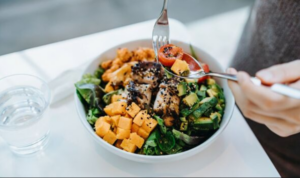
When you’re in the produce aisle, buy organic. When you’re choosing eggs, go for the Omega-3 or pastured variety. When you’re in the boxed or packaged section, leave the section.
Organic sugar is still sugar. Organic flour is still flour, and it’s very bad for your waistline. Anything processed but organic is still processed food, and you don’t need to bring it home with you.
Organic junk food isn’t healthier than regular junk food. Get a reality check.
Food companies are brilliant at tapping into our desire to make healthy choices. The struggle they face is providing foods outside the produce or meat section. Most of the aisles in the grocery store should be avoided. Nuts, spices, frozen vegetables and certain canned goods are the exception. Anything else in a box or a bag is probably not even food. No matter how big the “organic” label.
This applies to fancy grocery stores and healthy food co-ops. They have to fill the shelves with something. That doesn’t mean you need to eat it.
Don’t believe the branding and read the labels closely. Remember, real, whole food doesn’t need a label at all.
Take away message: Stop Falling for Organic
Mistake #9: Half Assing Your Diet

If you’re guilty of this one, you have two options:
1. Stop trying to diet. You may not be ready. Instead, pick out 1 or 2 tips listed here and don’t think about dieting again. Be unwavering and vigilant in your effort, and let yourself off the hook because, for whatever reason, you’re not ready to commit. That’s okay. Give yourself a break because the guilt over bad eating just makes the problem worse. You’ll know when you’re ready. And we’ll be here for you when it’s time.
2. Make it a priority. If something inside you is screaming, I’m ready to be healthy; I deserve this and it’s time for real action, a structured whole food detox is the best place to start.
Skinny Detox is our 10-day whole food cleanse that will help you start losing weight immediately. If you think you might be ready, take the plunge.

